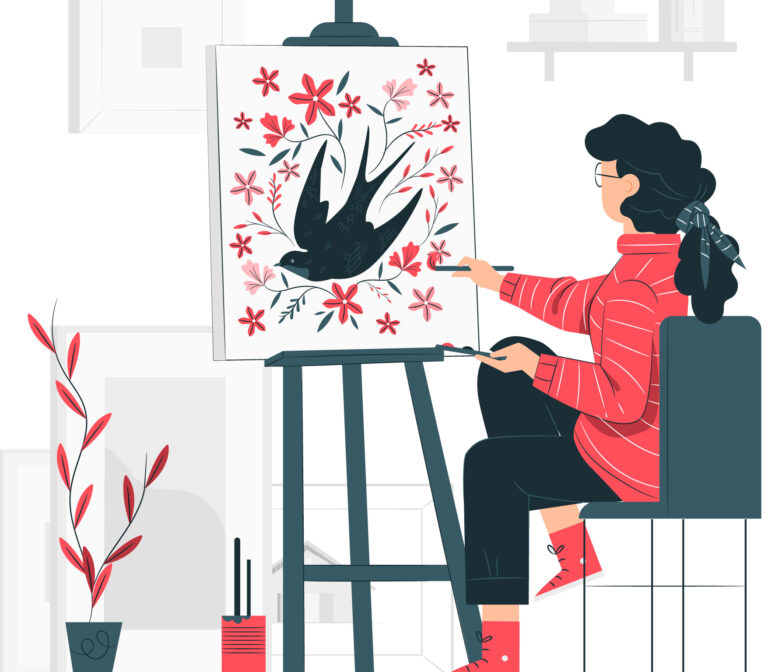Learn how to be more patient
One of the most challenging traits to cultivate is patience. For many people, the idea of waiting or dealing with delays can make them anxious and frustrated. However, it’s essential to develop the ability to be patient, not only for our personal well-being but also for the sake of our relationships and work success. I’ve been learning on how to be more patient during my high school days and here are my tips to help you become more patient!
Understand That It’s Okay to Be Impatient
The first step in becoming more patient is acknowledging that you have moments of impatience.
Many people equate impatience with being a negative trait; however, it’s important to remember that this is a universal emotion. There will be times when you become frustrated or agitated when things don’t move as quickly as you’d like. That’s okay!
It’s all about learning to manage and cope with those feelings.

Recognize Triggers That Make You Impatient
Understanding what sets off your impatience can help you to manage and control your emotions better. Are there certain activities, people or situations that trigger your impatience more than others? By identifying these particular triggers, you can work on finding ways to proactively manage your feelings when you are faced with them. You can practice mindfulness, deep breathing, or even visualization techniques to help calm your nerves.
Set Realistic Expectations
It’s important to set realistic expectations when it comes to yourself and others. Are you expecting too much of yourself or others? When you set reasonable expectations, it’s easier to accept that not everything is going to go exactly as planned. When you’re able to manage your expectations, you’re better equipped to handle frustrations and delays with more patience. Taking a step back and putting things into perspective can help you maintain a more positive attitude and prevent impatience from taking over.
Related: When you find yourself becoming impatient, it’s important to haveeffective and healthy coping mechanisms to rely on
Practice Empathy
Empathy is the ability to understand and relate to the feelings of others. When you’re able to see things from another person’s perspective, it can help you better understand why things are taking longer than usual or why someone hasn’t followed through with what they said. Practicing empathy can help reduce feelings of impatience and frustration. When you’re able to put yourself in someone else’s shoes, you’re more likely to feel connected to them and less likely to get upset if things don’t go as planned.

Take Care of Yourself
Being patient becomes much harder when you’re stressed, tired, or anxious.
Make taking care of yourself, Physically and mentally, a priority. Eating a nutritious diet, practicing good sleep hygiene, getting regular exercise, and engaging in self-care activities can help keep your stress levels in check.
When you’re feeling less stressed and better able to cope, it’s easier to remain calm and patient in challenging situations.
Practice Self-Awareness
Self-awareness is the ability to recognize and understand your own thoughts and feelings. By practicing greater self-awareness, you can gain Insight into where your impatience is coming from. What thoughts or beliefs are contributing to your feelings of frustration? Once you’re able to identify these thoughts, you can begin to challenge them and replace them with more helpful and Positive ones. This can help you become less reactive and more open-minded to other people’s ideas and ways of working.
Expect and Embrace Mistakes
No one is perfect, and it’s important to acknowledge that everyone, including yourself, will make mistakes from time to time. When you expect and embrace mistakes, you’re better equipped to handle setbacks with more patience. Instead of dwelling on what went wrong, try to learn from the experience and focus on the future. Being able to forgive yourself and others makes it easier to remain calm and collected in the face of adversity.
Find Healthy Ways to Cope
When you find yourself becoming impatient, it’s important to have effective and healthy coping mechanisms to rely on. Whether it’s going for a walk, practicing relaxation techniques, or engaging in a favorite hobby, finding healthy ways to cope can help you regain your composure. Taking a break from the situation and allowing yourself a moment to regain your calm can make all the difference.

So… what did we learn?
Becoming more patient Takes time and practice, but it’s definitely possible. When you take the time to truly understand and manage your impatience, you are better equipped to navigate your thoughts and feelings, remain focused on your goals, and foster healthy relationships. We know that practicing empathy, setting realistic expectations, and looking after yourself, you can gain greater insight into yourself and learn to manage your impatience in a way that is more constructive and beneficial. Remember please that it’s okay to become impatient from time to time, but it’s how you choose to navigate those feelings and cope with them that truly matters.








Muy buen post para saber como ser una persona paciente en base a tu exp
Bonito y reflexivo post.